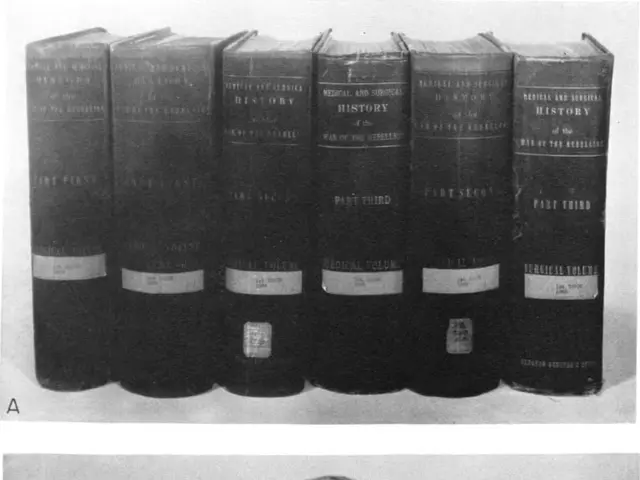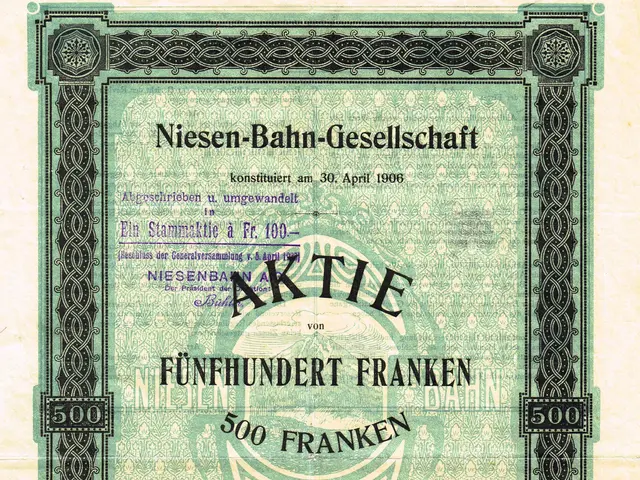safety matters: understanding airline ratings
Ranking Systems for Airline Safety and Their Development Over Time
Sharon Petersen, April 17, 2025
Are you feeling unsure when choosing your next flight? Airline safety ratings can help you make informed decisions.
In 2012, aviation expert Geoffrey Thomas and his wife Christine created Airline Ratings to provide travelers with a clear picture of safety levels for various airlines. Their goal was to build trust and provide a way to celebrate safety, not just expect it.
Over the years, the system has evolved, and many large, well-known airlines have made significant safety improvements as a result. Today, Airline Ratings' ratings are highly respected and considered the gold standard for travelers seeking a safe flying experience.
But how exactly are these ratings determined, and what do the 1-7 star safety ratings mean? Let's delve deeper.
Three Core Pillars
Airline safety ratings at Airline Ratings are built around three core pillars: pilot-related safety incidents, fatal accidents in the last ten years, and international safety audits.
- Pilot-Related Safety Incidents
The rating process begins by examining whether the airline has had serious pilot-related safety incidents. If none are found, the airline receives three stars for this category. If incidents do exist, the airline earns between zero and two stars, based on incident severity and frequency.
- Fatal Accidents in the Last Ten Years
This is one of the most sensitive aspects of calculating ratings. If the airline has experienced a passenger or crew fatality in the last decade, three stars will be deducted from its overall rating. The reasoning behind this approach is that it may take up to a decade for an airline's safety culture and practices to undergo fundamental changes.
It's important to note that Airline Ratings does not deduct stars for fatalities caused by terrorism, hijacking, pilot suicide, or accidents clearly not the airline's fault, such as runway incursions caused by external factors.
- International Safety Audits
Airline Ratings also considers the airline and its home country's performance during major international safety audits. Notable audits include:
- IATA Operational Safety Audit (IOSA)
- International Civil Aviation Organization (ICAO) country audits
- EU airline bans
- FAA safety ratings
If the airline passes all audits, one star is added to its rating. If not, the star is removed.
Airlines like EasyJet (UK) are given an exception, as they have not completed IOSA but boast a 30-year safety record without fatal accidents, making their safety record self-explanatory.
Every year, Airline Ratings releases a list of the World's Safest Airlines, recognizing airlines with the highest seven-star safety ratings.
Changing Times, Evolving Safety Standards
The world of aviation is constantly evolving with new technologies, more advanced fleets, and increasingly busy skies. To ensure the ratings remain as current, accurate, and forward-thinking as the airlines they evaluate, Airline Ratings will be making updates to the safety rating system in the coming year. It may include factors like airline policies around onboard lithium batteries, the inclusion of important safety messages in safety videos, and the use of advanced safety monitoring tools.
In addition, Airline Ratings will analyze ratings more frequently, updating them in real-time to reflect an airline's progress, or if it unfortunately falls behind.
Air travel remains the safest mode of transportation, and Airline Ratings is dedicated to supporting safety, promoting best practices, and recognizing the exceptional work being done in commercial aviation every day.
If you have questions or require more information, don't hesitate to reach out to Airline Ratings at sharon.petersen@ourwebsite. Safe travels!
[1] enrichment data: https://sites.google.com/site/airlineratingsexposed/methodology[2] enrichment data: https://www.globalairlineratings.com/faq/[3] enrichment data: https://globalairlineratings.com/worlds-safest-airlines-2025/
- In the aviation industry, finance and transportation sectors are closely linked as understanding airline safety ratings can impact the financial decisions of travelers.
- The airline news regarding Airline Ratings' World's Safest Airlines list is significant, as it reflects the ongoing improvements in airline safety and arms consumers with the knowledge to make informed choices.
- As transportation technologies advance and air travel continues to be the safest mode of transportation, Airline Ratings plans to update its safety rating system to incorporate new safety standards and technologies within the aviation industry.








